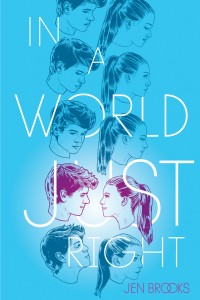new adult
“New Adult”
I first came across the term “New Adult” last year while writing a paper for graduate school. My understanding is that it was coined in November of 2009 when St. Martin’s press held a contest looking for stories that would appeal to an older YA audiencethose in their late teens and early twenties who are “new” to adulthood. It is a crossover audience of people too old to want to read 12-to 18-year-old-YA but looking for books that are like it with older characters.
Apparently the “New Adult” wave hasn’t caught on. If you Google “college age protagonists” you will find a selection of blog entries and other articles on the subject. Two I found interesting are this and this. The first contains a nice summary of the issue then a number of interesting comments. The second I find interesting because the speaker is an articulate 16-year-old. Look here for rules and entries in the actual contest. I find myself intrigued by the whole New Adult concept and the debate over its worthiness and lack of feasibility.
Mostly I see more and more of my friends, who are adults, reading YA lit. As a former high school teacher, I also know that actual young adults reach a certain point where they cross over to reading adult lit. So does the cycle of a reader’s life go . . . kid lit–>middle grade lit –>YA lit–> adult lit–>regress to YA lit? I don’t think so, but it brings up the question of what exactly it means for a book to be YA lit these days. If it isn’t the target audience (because adults are reading it, too, and pay the same dollars for it), then what is it? The coming-of-age subject matter? (As if no books labeled “adult” are coming-of-age stories.) Is it the complexity of the story? (As if adult books are uniformly more complex than YA ones. There is a range of complexity in either category.)
What is it? Huh? Huh?
I can’t think of a YA book I’ve read that didn’t feature a young protagonist, but I feel this criterion alone is insufficient.
Anyway, I’m not alone in thinking it would be nice to see some 18- to 26-year-olds featured in novels. If the story is good, would it really not sell because of the protagonist’s age? Or is the one thing that really matters the shelf it gets put on in the big bookstore?
Thoughts?
(Update on 12/19/12: I came across this Publisher’s Weekly article today. If you are researching the topic of “New Adult” literature, you might want to check it out:http://www.publishersweekly.com/pw/by-topic/industry-news/publishing-and-marketing/article/55164-new-adult-needless-marketing-speak-or-valued-subgenre.html)
